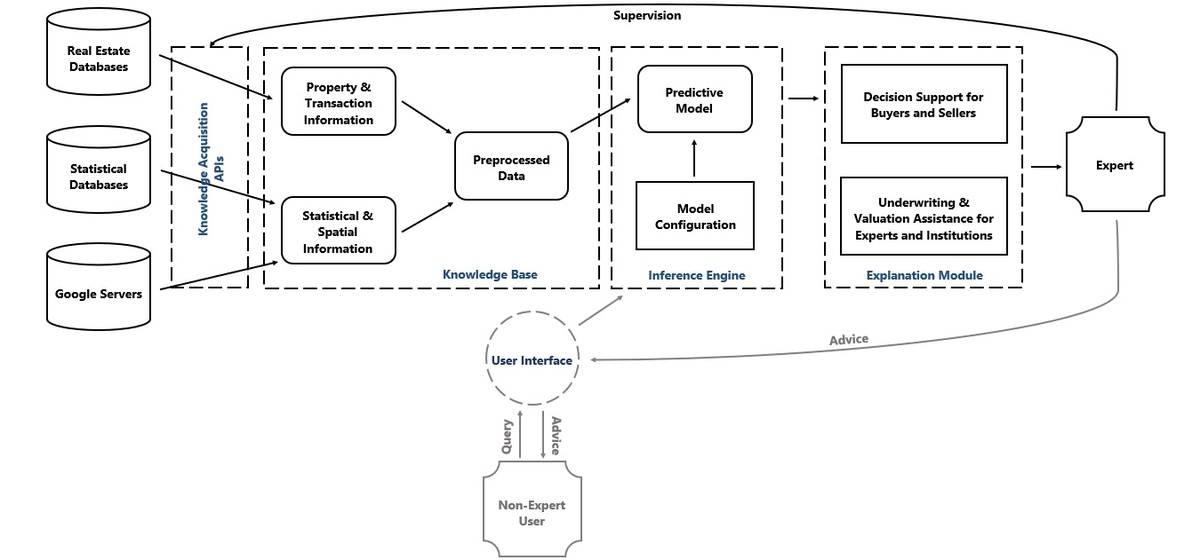Current issue
Online first
Archive
About the Journal
Aims and scope
Editorial Board
International Editorial Board
List of Reviewers
Abstracting and indexing
Ethical standards and procedures
REMV in Social Media
Contact
Instructions for Authors
Instructions for Authors
Manuscript formatting template
Title page
Highlights
Payments
‘Ghostwriting’ and ‘Guestauthorship’
Guidelines for Referees
Algorithm-driven hedonic real estate pricing – An explainable AI approach
1
Faculty of Economic Sciences, University of Warsaw
2
Department of Management and Information Technology, Faculty of Economic Sciences, University of Warsaw, Poland
Submission date: 2024-05-22
Final revision date: 2024-09-18
Acceptance date: 2024-11-21
Publication date: 2025-03-14
Corresponding author
Bartłomiej Dessoulavy-Śliwiński
Department of Management and Information Technology, Faculty of Economic Sciences, University of Warsaw, Poland
Department of Management and Information Technology, Faculty of Economic Sciences, University of Warsaw, Poland
REMV; 2025;33(1):22-34
HIGHLIGHTS
- there is demand for fast and dependable support tools for real estate valuation
- the paper applies explainable ai to machine learning predictions in real estate
- building age, location and property area are most influential in our analysis
- shap framework reveals the model's understanding of interactions and nonlinearity
- the significance of data quality to ensure reliable model outputs is emphasized
KEYWORDS
residential real estatemachine learningexplainable artificial intelligencemass appraisalautomated valuation models
TOPICS
ABSTRACT
Data-driven machine learning algorithms triggered a fundamental change in hedonic real estate pricing. However, their adaptive nonparametric structure makes inference and out-of-sample prediction challenging. This study introduces an explainable approach to interpreting machine learning predictions, which has not been done before in the local market context. Specifically, Random Forest and Extreme Gradient Boosting models are developed for residential real estate price prediction in Warsaw in 2021 on 10,827 property transactions. Model-agnostic Explainable Artificial Intelligence (XAI) methods are then used to investigate the black box decision making. The results show the practicability of applying XAI frameworks in the real estate market context to decode the rationale behind data-driven algorithms. Information about the relationships between input variables is extracted in greater detail. Accurate, reliable and transparent real estate valuation support tools can offer substantial advantages to participants in the real estate market, including banks, insurers, pension and sovereign wealth funds, as well public authorities and private individuals.
Share
RELATED ARTICLE
We process personal data collected when visiting the website. The function of obtaining information about users and their behavior is carried out by voluntarily entered information in forms and saving cookies in end devices. Data, including cookies, are used to provide services, improve the user experience and to analyze the traffic in accordance with the Privacy policy. Data are also collected and processed by Google Analytics tool (more).
You can change cookies settings in your browser. Restricted use of cookies in the browser configuration may affect some functionalities of the website.
You can change cookies settings in your browser. Restricted use of cookies in the browser configuration may affect some functionalities of the website.




